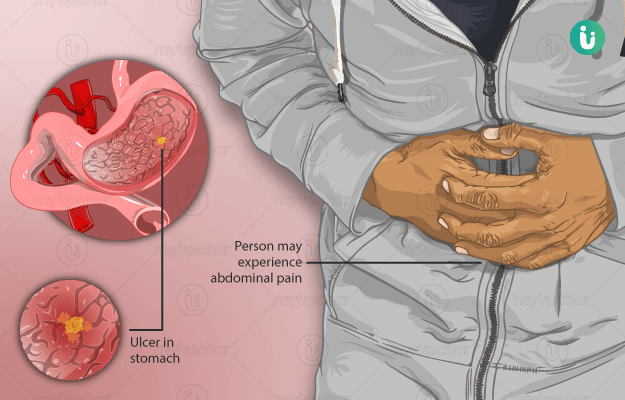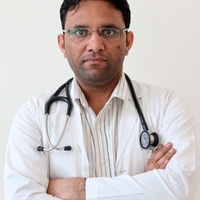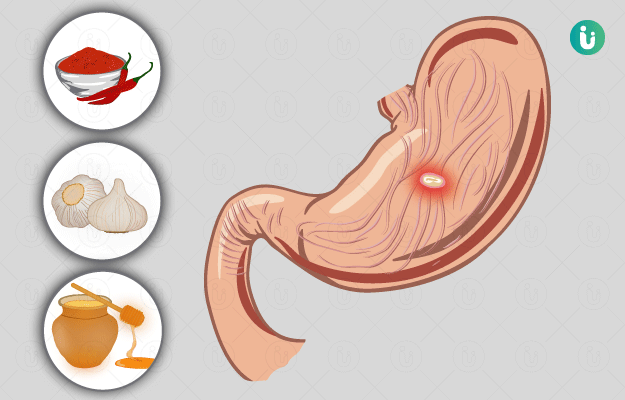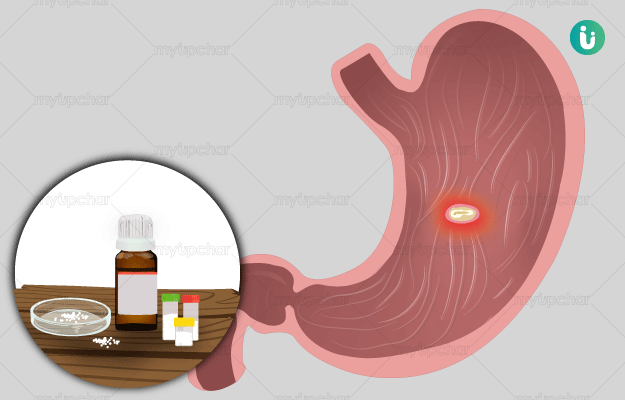Summary
Peptic ulcers are sores that develop in the stomach and the small intestine (duodenum). They are characterized by pain in the stomach area, loss of appetite and weight loss. Pain or discomfort caused by these ulcers reduces upon eating or by taking antacids. Peptic ulcers are usually caused by long-term use of non-steroidal anti-inflammatory drugs (NSAIDs) or the presence of a bacterial infection caused by Helicobacter pylori bacteria. Diagnosis of the condition is based on symptoms, history regarding the use of NSAIDs and specific tests that detect the presence of a bacterial infection. Usually, endoscopy is advised in older people, people who show severe symptoms or possible complications and people with persistent symptoms.
Treatment of peptic ulcers depends on the underlying cause. People on NSAIDs may be required to discontinue use while those having a bacterial infection are prescribed antibiotics. Proton pump inhibitors are usually prescribed to control the production of gastric acid. Complications may arise if treatment is delayed or if the ulcer does not respond to medication. Rare complications may include intestinal perforation, gastric obstruction, and peritonitis which require immediate medical attention and surgery.
Are you also troubled by obesity and are not able to lose weight even after a lot of efforts, then start using myUpchar Ayurveda Medarodh Weight Control Tablet today and control your weight.

 Doctors for Peptic Ulcer
Doctors for Peptic Ulcer  OTC Medicines for Peptic Ulcer
OTC Medicines for Peptic Ulcer
 Peptic Ulcer articles
Peptic Ulcer articles

 Diet for Peptic Ulcer
Diet for Peptic Ulcer
 Home Remedies for Peptic Ulcer
Home Remedies for Peptic Ulcer
 Homeopathic Treatment of Peptic Ulcer
Homeopathic Treatment of Peptic Ulcer







 Editorial Team
Editorial Team

 Dt. Akanksha Mishra
Dt. Akanksha Mishra

 Dr. Rachita Narsaria
Dr. Rachita Narsaria











